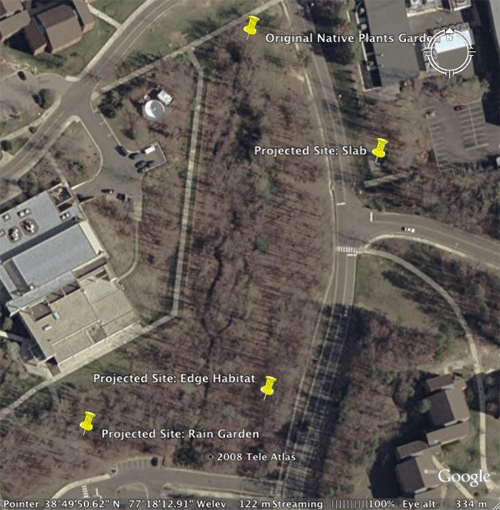Native Plants Garden to Upgrade for a Greener GMU
By Connect Mason Reporter Nick Walker
Two years after its creation, some changes are coming to Mason’s Native Plants Garden.
In order to support the needs of the rapidly growing student population in the northeast sector of campus, a new chilled water line will be installed through the garden’s current location. The cost of moving the line elsewhere would be prohibitive, and therefore the Native Plants Garden must be moved elsewhere. The Facilities office, which was instrumental in creating the initial garden and a long time supporter of the project, has approved several possible new locations and assisted in securing supplies and resources.
These sites include a grassy area on the outside of Patriot Circle, an edge habitat along a sidewalk and a rain garden downhill of Science and Tech II.

The Native Plants Garden began two years ago through collaborative efforts by student and faculty volunteers with the help of local Buddhist environmental nonprofit organization Earth Sangha. Earth Sangha has provided Mason with both plants and advice on what locations are most suitable to each species. As such, one consideration was to primarily include plants which are in bloom during the month of May, when the University has the most visitors.
This coalition of faculty, students, and outside volunteers will be working together over the next few weeks to transfer all of the existing plants to several new locations around campus. Lisa Bright, director of Earth Sangha, visited Mason March 24 to evaluate the three possible new sites for planting. Bright will be working with the Mason community to begin transplanting the garden during Earth Week, starting April 23.
The current garden contains more than fifteen unique species native to Northern Virginia. Native plants create better soil conditions, require fewer pesticides and are better adapted to survive droughts and floods than non-native or invasive species. Incidentally, invasive plants also pose a risk to campus ecology with English Ivy, Japanese Honeysuckle and other exotics which threaten Mason’s remaining forested areas.
Students who wish to become more involved with this project may contact Jose Gayoso at jgayoso@gmu.edu. In addition to the planting on the 23rd, student volunteers are needed to maintain the gardens, especially during summer months.
